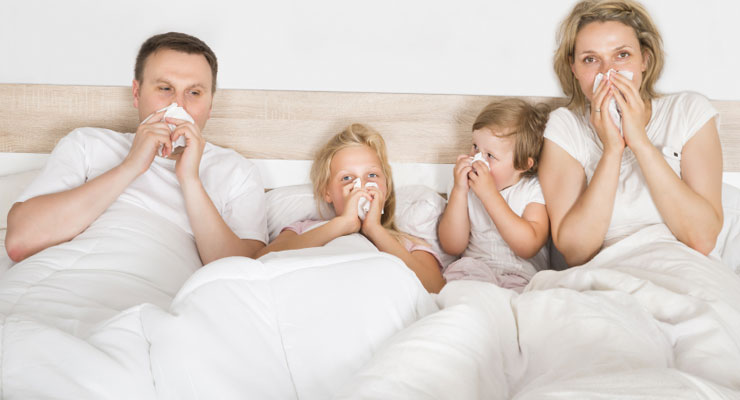
World Immunisation Week is here, and it’s time to focus on vaccinations. Around the world, more than 19 million children are unvaccinated or under-vaccinated. Australia has relatively high rates of vaccination, but there is still a minority of people who do not follow the recommended vaccination schedule.
In Australia, we’ve largely eliminated many once-common diseases through immunisation – but that doesn’t mean they can’t come back. Vaccines work, but we shouldn’t get complacent about illness. Let’s look at why it’s important to keep up-to-date.
Do Vaccines Work?
Vaccines are extremely effective at reducing disease, and are the safest and most cost-effective way to do so. Vaccines use our own immune systems to protect us. A weakened, dead or part of a virus or bacteria is introduced to the immune system. It’s too weak to actually infect us, but enough for our immune system to “learn” to fight it with specialised antibodies. If we encounter the real disease, our bodies will quickly recognise and destroy it, resulting in a mild version of the sickness or no infection at all.
It’s easy to feel like certain vaccines are unnecessary because we are used to living in a country that has spent decades attempting to eradicate serious diseases. However, just because there are fewer visible cases in the community doesn’t mean the disease has gone.
Are all Vaccines Really Necessary?
Some people avoid certain vaccines, believing them to be unnecessary. Measles is a good example of a sickness that people underestimate, and might avoid being immunised against. While for most people measles is a relatively mild (although unpleasant) illness, around 1 in 5,000 who get the virus will die. Other complications are hepatitis, meningitis, loss of vision, and complications for unborn children if a pregnant mother gets the disease.
In 2014, the WHO announced that measles was eliminated in Australia. Surely now we can stop vaccinating against it? Unfortunately not. As the recent measles outbreaks in various parts of Australia show, just because the disease has been eliminated in the Australian population does not mean it can’t be brought in from outside the country. When it is, a vaccinated population will make it much harder for an epidemic to spread.
Could Improved Hygiene Explain Disease Reduction?
Some people believe that reduction in serious diseases is not a result of vaccinating, but rather just because we as a society have become cleaner and more aware of diseases. Chicken pox is the best example of why this is not the case.
The vaccine for varicella (which causes chicken pox) has only been available since the mid-1990s. In the early 1990s, before the vaccine became available, the U.S. had about four million cases of chicken pox per year. By 2004, cases of chicken pox had dropped by 85%. Hygiene practices had not changed significantly in that time – only immunisation could explain such a drastic improvement.
What You Can Do
The most important job is to make sure that you and your family are up-to-date on their vaccinations. The Australian Childhood Immunisation Register has information on what your child has already had, and what they might need. If you have fallen behind, you can talk to your doctor about a catch-up schedule.
Getting vaccinated is absolutely vital for the health of your family and the wider community. If you have questions, your GP can answer them and point you in the right direction for accurate, trustworthy information. Vaccines work, and it’s up to each individual to keep ourselves and vulnerable people around us protected.
Click here to book an appointment with a GP to discuss immunisation –>

